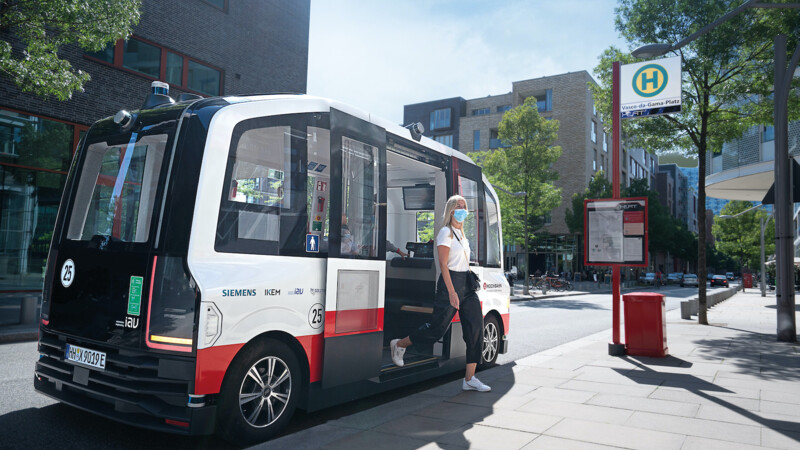Anjes Tjarks, Senator for Transport, has termed the funding scheme a "total success". "Switching taxis to electric mobility will help the City of Hamburg to achieve its climate targets. The modern cars offer passengers more comfort and options for CO2-free mobility. The drivers also benefit from the switch to e-mobility. Their workplace becomes more pleasant and passenger demand is higher than for ordinary vehicles."
A second e-taxi rank went into operation Monday (June 13, 2022) at the Eidelstedt S-Bahn station with fast chargers for taxis after the first e-taxi rank at Alsterdorfer Markt. Plans are being laid to set up another 30 to 40 e-taxi ranks which the city will set up with its partners. This comes after the senate drew a positive interim balance of the "Future Taxi" scheme underway since April 2021. The scheme boosts the conversion of taxis to alternative drives and setting up new charging stations for e-taxis.
Boost for Hamburg's climate targets
Switch to e-taxis
Hamburg already leads the way in Germany with over 160 e-taxis compared to only four when the scheme began. The great demand has prompted the city to back 460 e-taxis or 17 per cent of the taxi fleet and more than originally planned. The city has put up to EUR 20,000 towards the purchase of new cars. All subsidised taxis should be on the streets of Hamburg by late 2022. This should reduce CO2 emissions by around 4,200 tonnes per year, according to the senate.
tn/pb
Sources and further information
More
Similar articles

Spot, the robotic dog, takes over Köhlbrand Bridge

Hamburg's city cycling campaign aiming for 2.5 million kilometres

Hochbahn and ZF Friedrichshafen to boost driverless public transport
